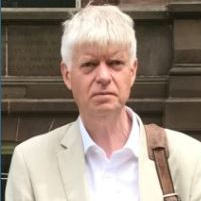Religion, Education, Security
A special issue of Religions (ISSN 2077-1444).
Deadline for manuscript submissions: closed (1 December 2018) | Viewed by 39376
Special Issue Editor
Interests: the epistemological foundations of contemporary religious education; theories of religion as social and cultural critique; education, security and intelligence studies; philosophy, literature and education
Special Issue Information
Dear Colleagues,
In Schmitt’s (2005) Political Theology, a critical historicity allowed him to claim that ‘All significant concepts of the modern theory of the state are secularized theological concepts’ (Schmitt 2005: 36). Schmitt, above all theorists, demonstrates how the political becomes ‘theological’. Voegelin’s (1999) analysis of the ‘political religions’ (Maier 2004, 2007; Maier and Schafer 2007) here draws theorists to the enduring legacies of autocracy, dictatorship and totalitarianism (Arendt, 1951; Casanova, 1994; Friedrich and Brzezinski, 1967; Popper, 1946; Power 2007; Roberts, 2006; Schapiro, 1972; Talmon, 1961).
In the present, the resurgence of religion in public life has been marked by intense debates over global governance (Burleigh 2006; 2007; Davis, Milbank, and Zizek 2007; Fox and Sandler, 2006) Habermas 2006; Huntington, 1992; James, 2006; Woodhead et al. 2016). These debates have often been framed as variant forms of political theology (De Vries and Sullivan 2006; Scott and Cavanaugh, 2004). Critically, the resurgence of religion in the public sphere has marked too by reconsiderations of secularization theory (Berger, 1999; Bruce, 2002; Davie, Berger and Fokas 2008; Habermas, 2008; Habermas and Ratzinger 2008; Stark, 1999).
Concurrently, across security and intelligence studies, theorists have noted a marked expansion or ‘securitization’ to a number of different domains (Albert and Buzan, 2011; Buzan 1991; Dunn Cavelty and Mauer 2012; Emmers, 2007; Peoples and Vaughan-Williams 2010; Williams 2003; Taureck, 2006; Waever, 1995; Huysmans, 1998). Securitization theory presents a means of exposure, a frame of exposition and a method of analysis of this claimed expansion of security across five such areas of human experience: military, political, societal, economic, and environmental (Waever, 1995; Buzan et al. 1997; also Huysmans, 1998; van Munster, 2016). Bagge Laustsen and Wæver (2000), even prior to 9/11, suggested adding a sixth category of religion.
On first glance the politicization and securitization of religion may seem remote from education. A second look reveals widespread international initiatives aimed at the uses of education precisely for political and security purposes, notably in the countering of terrorism, violent extremism and ideologies opposed to liberal democratic values (Ghosh, Manuel, Chan, Dilimulati, Babaei, 2016). The European Agenda on Security (EAS 2015) has here increasingly drawn universities into the fray, while in the UK specifically, the Counter Terrorism and Security Act 2015 has given public bodies, including educational institutions, legislative responsibilities for maintaining and enhancing security and preventing terrorism, and the ideologies which allow terrorism to flourish. The editor’s conceptualisations of the ‘counter-terrorist classroom’ (Gearon 2013) and the ‘counter-terrorist campus’ (Gearon 2017) have sparked at times vituperative debate (Jackson 2015; Lewin 2017).
The central aim of this volume is critically to engage scholars across religious studies and theology, politics and international relations, security and intelligence studies, to explore through empirical evidence and reasoned argument the role here for religion in education.
The volume aims to make some ground-breaking cross-disciplinary theoretical advances and methodological innovations not simply to further debate but to provide the tools for asking new questions and opening new pathways and frameworks for exploring the critical interface of religion, education and security.
Prof. Dr. Liam Francis Gearon
Guest Editor
Manuscript Submission Information
Manuscripts should be submitted online at www.mdpi.com by registering and logging in to this website. Once you are registered, click here to go to the submission form. Manuscripts can be submitted until the deadline. All papers will be peer-reviewed. Accepted papers will be published continuously in the journal (as soon as accepted) and will be listed together on the special issue website. Research articles, review articles as well as short communications are invited. For planned papers, a title and short abstract (about 100 words) can be sent to the Editorial Office for announcement on this website.
Submitted manuscripts should not have been published previously, nor be under consideration for publication elsewhere (except conference proceedings papers). All manuscripts are thoroughly refereed through a double-blind peer-review process. A guide for authors and other relevant information for submission of manuscripts is available on the Instructions for Authors page. Religions is an international peer-reviewed open access monthly journal published by MDPI.
Please visit the Instructions for Authors page before submitting a manuscript. Submitted papers should be well formatted and use good English. Authors may use MDPI's English editing service prior to publication or during author revisions.
Keywords
- Religion
- Education
- Security





